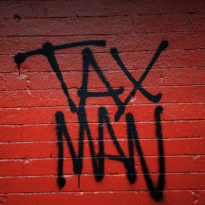The DWP’s preferred option preferred in its current consultation on the levy for occupational and personal pension schemes, is both shocking and potential catastrophic for the SSAS market and ts members, says Stephen McPhillips, Technical Sales Director, Dentons Pension Management Limited.
On 2 October 2023, the Department for Work and Pensions (DWP) issued a consultation document; The Occupational and Personal Pension Schemes (General Levy) Regulations review 2023.
The review seeks to deal with a deficit in the “General Levy” on occupational and personal pension schemes. It relates to the need to increase levies for occupational and personal pension schemes because there’s a funding deficit that needs to be addressed. The levy pays for The Pensions Regulator (TPR), the pensions-related activities of the Money and Pensions Service (MaPS) and The Pensions Ombudsman, as well as The Pensions Regulator’s work on the Dashboards.
Three different proposals have been put forward by DWP to eliminate the funding deficit:
Option 1: Continue with the current levy recovery rates and levy structure.
Option 2: Retain the current levy structure and increase rates by 6.5% per year for all schemes.
Option 3: Increase rates for all schemes by 4% per year, and add an additional premium rate payment (£10,000) for small schemes (with memberships under 10,000).
DWP has, very worryingly, stated that “Option 3” is its preferred option.
This is truly shocking and its potential impact on SSAS members, and on the SSAS market as a whole, could be catastrophic.
What is equally shocking is that TPR has openly stated that it wants to see “fewer, larger well-run schemes” and TPR has made it clear that small schemes with 2 to 11 members are firmly and deliberately targeted and within the scope of the proposals.
It appears that TPR wishes to effectively bring an end to the existence of SSAS and it has quoted its own research which suggests that schemes with fewer than 10,000 members (including SIPP and SSAS) suffer from “lower governance standards, lower knowledge and awareness of pensions and low compliance levels” compared to large schemes.
All three of these are likely to be alien to professional co-trustees who offer SSAS, because that’s simply not how SSAS are typically operated with a professional co-trustee’s involvement.
Members of SSAS (who are typically company directors / senior managers running their own successful businesses) usually have higher levels of knowledge and awareness of business, money and pensions and they are far more engaged in the investment process than most members of large pension schemes.
I’m sure most of our peers within the industry who operate as professional co-trustees to SSAS would feel the same.
Readers may recall that the requirement to have an independent professional co-trustee attached to a SSAS (the so-called “Pensioneer Trustee) was removed from 6 April 2006 with the introduction of “pensions simplification.” A simple solution to deal with TPR’s concerns about governance in some SSAS would be to reintroduce this requirement for all SSAS.
It is alarming that TPR seems to have a desire to eliminate part of the very market that it exists to regulate. It also seems to be at odds with government’s previously stated (and subsequently re-stated) policy to increase control and choice in investments within pensions. Member-directed pension schemes (and SSAS and bespoke SIPPs in particular) provide the very mechanism for this to be achieved.
It is elected members of Parliament who, after all, make policy and it is difficult to understand how and why TPR could propose a course of action that could decimate an industry and cause significant issues for consumers who could never have reasonably foreseen such a seismic shift in approach to the cost of regulation of their pension schemes.
If Option 3 was forced upon the industry, it would set a very worrying precedent; that a publicly funded body (rather than elected members of Parliament) decides that a type of pension vehicle that has been in existence for 50 years should no longer be considered acceptable to regulate.
TPR states in its “vision and values” that it is “committed to the pursuit of good outcomes for workplace savers”. Its proposed Option 3 would not deliver this outcome for the thousands of members of SSAS around the country. In fact, it would achieve the opposite outcome in our view, and we sincerely hope that the special and unique nature of SSAS is recognised in this consultation – just as it was back in the early 1990’s when SSAS came under attack at that time.
The members/trustees of SSAS schemes play a significant part in the success of the UK economy, not only as business owners and entrepreneurs but also as investors of pension scheme monies into the equity and commercial property markets. Effective forced closure of this type of scheme will impact the UK commercial property and equity markets, as well as to stifle entrepreneurial enterprise in the UK.
Paraplanners whose firms have SSAS clients could find that those clients are badly affected by adoption of Option 3 and it is hoped that the industry as a whole pulls together to challenge this deliberate attack on SSAS – in much the same way as happened in the early 1990’s when proposed self-investment restrictions would have decimated the market. Back then, thankfully, the government did actually choose to recognise the unique and special nature of SSAS.
Dentons has already responded to the consultation with a preference for “Option 2” – a far more manageable and reasonable annual increase of 6.5% on current levies, which would, by DWP’s own figures, eliminate the cumulative funding deficit by 2030/31.
The consultation closes on 13 November 2023.



























